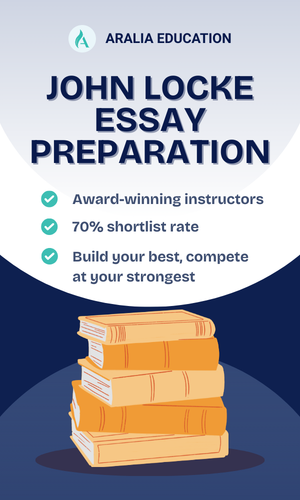High school curricula often introduce texts characterized by sophisticated syntax, dense information delivery, and advanced rhetorical strategies, such as persuasive essays, academic journals, or classic literature. Furthermore, reading assignments are the foundation of everything one learns in every subject, from interpreting historical documents to understanding chemical processes. Reading, although challenging, is a crucial skill that prepares you for college, for future careers, and for navigating the complexities of the real world.
1. Why Is Reading Crucial for High School Students?
The foundation for academic excellence
In high school, the curriculum becomes intricate, and reading comprehension becomes your best tool for navigating it. Whether it’s understanding a history document or tackling the lengthy math word problem, the ability to deeply understand a text is what separates thriving students from struggling ones. Furthermore, exposure to a variety of books, articles, and essays expands a student’s vocabulary and grammar. These linguistic gains directly improve writing quality, which leads to better essays, reports, and communication in exams, college applications, and more.
Enhance critical thinking and concentration
The most significant long-term benefit of reading is its role in developing sophisticated critical thinking skills. When a student engages with a challenging text, they develop abilities to question, analyze, and synthesize information. This mental exercise trains the brain to think logically, spot bias, and form well-reasoned conclusions, skills that are essential even beyond the academe. In addition, close reading directly improves concentration and focus by requiring sustained attention over an extended period.
Building emotional intelligence and empathy
Beyond the classroom, reading is a powerful tool for personal and emotional growth. When students immerse themselves in fiction, they are effectively embodying someone else’s experience. This practice in perspective-taking is the basis of empathy and emotional intelligence. For the student who is still figuring out their place in the world, reading offers a safe space for self-discovery and identity exploration, allowing them to theoretically test out different ideas and values, weighing each perspective. Finally, reading offers a healthy and effective stress management, providing a meditative escape from the pressures of homework and extracurriculars.
Increases brain activity
More than building emotional intelligence and developing critical skills, reading also boosts brain activity. The brain is much like any other organ; it needs exercise and careful maintenance to function healthily. Reading is beneficial as it stimulates the brain, engaging its different regions to work more efficiently. By doing so, the neurological functions of the organs are also boosted, including memory, visual, and linguistic abilities. Additionally, this mental exercise also keeps mental disorders at bay since the brain is stimulated at a healthy rate, allowing emotions to be processed well and stress to be regulated.
Improve Your Grades Within One Semester
2. Common Challenges to Reading Proficiency in High School
High school students often encounter specific obstacles that impede their ability to comprehend and learn from assigned reading materials.
Primarily, the increase in reading volume and complexity can overwhelm a student’s cognitive capacity. If too much mental energy is spent decoding long, unfamiliar words, your pace slows down, making it hard to get through the material in time. The lack of background knowledge in history, science, or culture can also prevent students from making the necessary connections to grasp the subject matter.
Second, navigating the diverse and rich lexicon of academic and literary texts poses a continuous challenge. Students will encounter advanced jargon (like photosynthesis or post-colonialism) and non-academic words rarely used in everyday conversation. If you don’t know the words, you lose the meaning of the sentence. Sometimes, a text assumes that students already know a historical event or a scientific concept, but knowledge absorption doesn’t happen if the context is lost.
And most importantly, a passive approach to reading undermines both comprehension and long-term retention. When students are not interested in the topic, they “read” the words but don’t engage with the ideas, making retention nearly impossible. Furthermore, high school texts often deal with abstract ideas: justice, morality, or existentialism. It takes active thinking to grapple with these concepts.
3. Strategies for Improving High School Reading Skills
To overcome these obstacles and cultivate highly effective reading habits, students should adopt active and analytical strategies.
Master the art of active reading:
Passive reading is simple. Anyone can move their eyes across the page, but active reading means your brain is working hard. Here are some techniques that you students can practice to develop advanced reading skills:
- Pre-read to prime your brain: Before starting to read, skim the title, headings, bold words, and look at any pictures or charts. Ask yourself: What is this about? What do I already know? This sets a purpose for your reading.
- Annotate with a purpose: Don’t just highlight everything. Use a pen or pencil to interact with the text. You can underline the main idea or topic sentence, circle unknown vocabulary or key terms, and write notes in the margin.
- Break the reading into smaller, manageable chunks: Group relevant sections, pause, and ask: What was the main idea here? If you still struggle, re-read the section.
Build your word collection:
A broader vocabulary means faster reading and better comprehension. To enhance vocabulary, it is better to guess an unfamiliar word’s meaning from the surrounding sentences before looking it up–this is called context clues. You can create a vocabulary log by writing down the word, its definition, and the sentence it was used in. This log should be reviewed regularly to enhance memorization.
Become a critical thinker:
As you read, channel your inner skeptic. Ask: Why did the author include this detail? What is the author’s argument or bias? How does this connect to our class discussion? To digest a text critically, you should relate similar concepts or information to other texts, such as historical events, current news, or even your own life experience. Making these connections makes the material more meaningful and memorable. After finishing a chapter or an article, try to explain the main points out loud to yourself or a friend. If you still can’t, then you have not internalized the text yet.
Join Aralia's Intensive Reading Program For Young Learners
Reading in high school is a workout for your brain. Every book, article, and paper you tackle is a step toward becoming a smarter, more capable student. Be patient with yourself. Start reading with these steps and watch yourself holistically improve!









